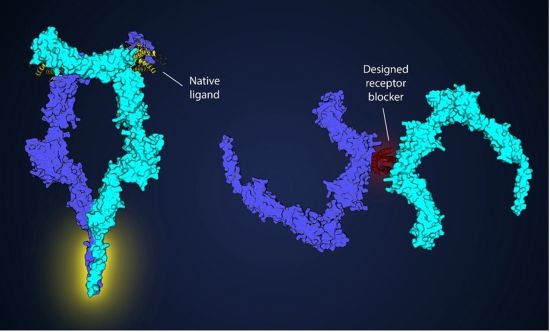
Proteins are the workhorses of biology, so being able to design them from scratch to do particular jobs is a big deal. A single mutation can change how a protein interacts with its environment.
Proteins are called the building blocks of life. They likely preceded the emergence of RNA and DNA. Both of these life-bearing molecules learned to use proteins to instruct cells to carry out jobs. A normal functioning protein does its job. A slightly mutated protein can cause havoc. A human-designed protein, on the other hand, opens up a new range of therapies to treat many intractable diseases.
Humans are learning to use artificial intelligence (AI) and tools like CRISPR to change existing proteins and design new ones. That’s what is happening in the research laboratories of Canada’s University of Toronto (UofT), Germany’s Max-Planck-Gesellschaft, and America’s NYU Langone Health’s Perlmutter Cancer Center.
University of Toronto Uses AI to Design New Proteins
Michael Garton, Assistant Professor at UofT’s Institute of Biomedical Engineering describes the potential of this line of research stating, “Gene therapy holds immense promise, but the body’s pre-existing immune response to viral vectors greatly hampers its success.” A novel protein that our immune systems cannot recognize is the goal of UofT’s research. In January 2024, a study in Nature Machine Intelligence described an AI approach to designing new proteins developed at UofT. Suyue Lyu is the lead author. She told UofT News, “We want to design something that is distant from all human variants and is, by extension, unrecognizable.”
That’s the whole point of novel protein designs. They can bypass normal immune response blockers. At UofT, a methodology for designing variant proteins called ProteinVAE can generate lightweight long proteins that change their surfaces to evade immune responses. This makes it possible to design proteins that can tackle many diseases.
Garton noted, “This work indicates that we are potentially able to design new subspecies and even species of biological entities using generative AI, and these entities have therapeutic value that can be used in novel medical treatments.”
Max Planck Institute’s Evasive Protein Targets Leukemia
At the Max Planck Institute, researchers are designing evasive proteins to treat acute myeloid leukemia and other blood cancers. Their novel protein blocks white blood cells from proliferating and turning into cancers. Specifically, the invented protein blocks the G-CSFR receptor from signalling white blood cells to divide and grow. This G-CSFR dysregulation may be the key to tackling many other autoimmune and inflammatory diseases. The research was published in November 2024 in the journal PLOS Biology.
NYU Creates A New Antibody For Potential Cancer Treatment
At NYU Langone Health and its Perlmutter Cancer Center, researchers are developing a biologic drug to target a mutant cancer protein called HER2. The goal is to not attack HER2’s normal counterpart found in healthy cells.
Shohei Koide, a professor in the Department of Biochemistry and Molecular Pharmacology at NYU described the research in the university’s NewsHub last October.
“We set out to make an antibody that can recognize a single change in the 600 amino acid building blocks that make up the exposed part of the HER2 protein, which conventional wisdom says is very difficult. The fact that we were able to detect the difference of a single amino acid so cleanly was a surprise.”
These research results have been published in the journal Nature Chemical Biology. They describe how their new protein-engineering was able to develop antibodies that recognized the mutant HER2. They converted the antibodies into a bi-specific T-cell engaged with two functions, one to find and stick to a cell with the mutant HER2 protein on its surface, and two two to attract healthy T cells to kill the cancer cell. Testing on mice with mutant HER2 tumours showed significantly reduced cancerous growths without causing weight loss or any visible sickness.
The NYU team plan to develop the technique further to make specific treatments to engage other mutant proteins that cause cancer.
Others In the Protein Development Game
Researchers at Profluent Bio in California are using AI to design novel CRISPR gene editors and have developed OpenCRISPR-1, the first AI-generated gene editor.
Duke University researchers are using AI to design peptides to target and kill “undruggable” diseases caused by proteins. The researchers have created a software algorithm, called PepPrCLIP that can best match a peptide to a target protein. The goal is to treat several formerly pharmacologically untreatable diseases by targeting disordered proteins that have proven difficult to neutralize through other forms of treatment.
AlphaFold, a product of DeepMind, a British company that is now a part of Google, is being used by New York City-based Therapeutics is designing molecules that replicate selective actions of natural proteins that affect brain function focusing on neurotransmitters associated with many neurological diseases such as schizophrenia and bipolar disorder.








